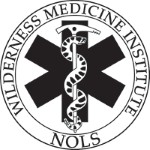LMAA Members Assist with Hurricane Katrina Efforts
Press Release
On August 29, 2005 a strong category four hurricane made landfall just east of New Orleans, LA. Hurricane Katrina is the biggest disaster to have hit the United States, with over 90,000 square miles affected and at least 5 million people without power. New Orleans was flooded with up to 10 feet of water in some places. Millions are without power, water or even a place to live. Three states are directly affected, and many more states are effected by the influx of the displaced citizens from those regions. Looting, disease, violence and death were prevalent throughout the storm ravaged areas and efforts were hindered by total destruction of communications and infrastructure.
The Virginia Tech Rescue Squad has been training members in emergency services for over 30 years and many of the Life and Alumni members have continued their interest after college in either a career or volunteer role with many Fire, EMS, Medical or governmental fields. A few of our LMAA friends were directly involved with the Relief Efforts (or initial emergency response) to the Gulf Coast Region and have made a significant contribution to the welfare and safety of those citizens. They have chosen to share their experiences with us to give us a better understanding of what happened and how grateful they are to have been able to help.
Gordy Sachs is a VTRS Alumni Member who graduated from VT in 1980. He works for the U.S. Fire Administration, which is considered a part of FEMA. Gordy was deployed to the National Response Coordination Center in DC which is FEMA's National Emergency Operations Center. He was there for two weeks beginning September 3, 2005. While there, Gordy contacted the New Orleans Fire Department and the State of Louisiana to determine what firefighting resources were needed to support New Orleans and other fire departments throughout the state. Gordy worked with the Department of Transportation and U.S. Forest Service to organize and coordinate the airlift of 325 New York firefighters to New Orleans and the logistical support for them once they got there. He also coordinated the logistical support for the firefighters who were staging at the LSU Emergency Operations center and assisted in the organization of those personnel and resources. Gordy was also involved with the assessment of the emergency services infrastructure (the fire and EMS stations, the 911 systems, the radio communications capabilities, etc) throughout the impacted area. "I?m glad I had a little part of what went on by supporting the emergency responders on the ground in the three states."
Russ Hummel is a VTRS Life Member who graduated from VT in 1977. Russ works for the MITAC Dept of Surgery at the Virginia Commonwealth University. MITAC is part of the medical branch of NASA and was called to help with communications and health care at the Stennis Space Center. NASA had evacuated all of their employees and families to the Stennis Space Center for the duration of the crisis caused by Hurricane Katrina. Russ left with the rest of his team on the afternoon of September 2nd. "We arrived on the base at 5:00 PM on Friday to find a small group of nurses and 2 doctors trying to use the occupational medicine clinic (OCCMED) as an ER."
The previous Tuesday, NASA had opened the base to evacuees and had about 2000 people move in. People were placed in offices and hallways until they could be moved to local shelters. The OCCMED clinic was designed to provide medical physicals and other occupational medicine issues and normally saw only 4 or 5 patients a day. Many of the refugees were needed medical care and at one point there were 600 patients waiting to be seen. Upon arrival, the team from MITAC assisted with patient care and provided Hepatitis A and Tetanus shots to the NASA employees and injured patients. Most of the injuries were minor and were easily treated. Others needed prescription medications that they were unable to find anywhere else.
Russ was tasked with providing telecommunications and Internet connectivity to the clinic using satellite phones. One of the major difficulties experienced by the OCCMED clinic was that there was no way to communica

